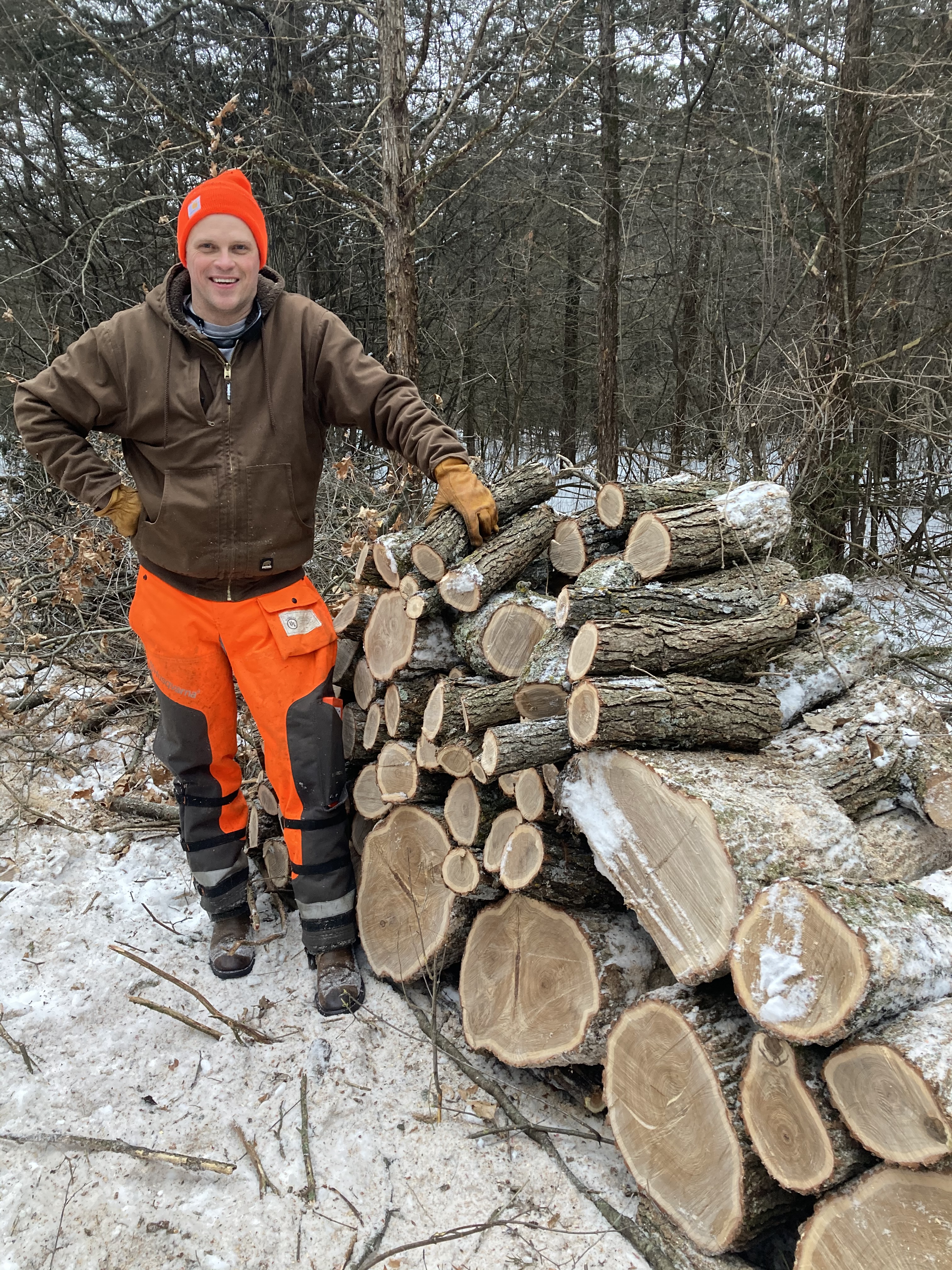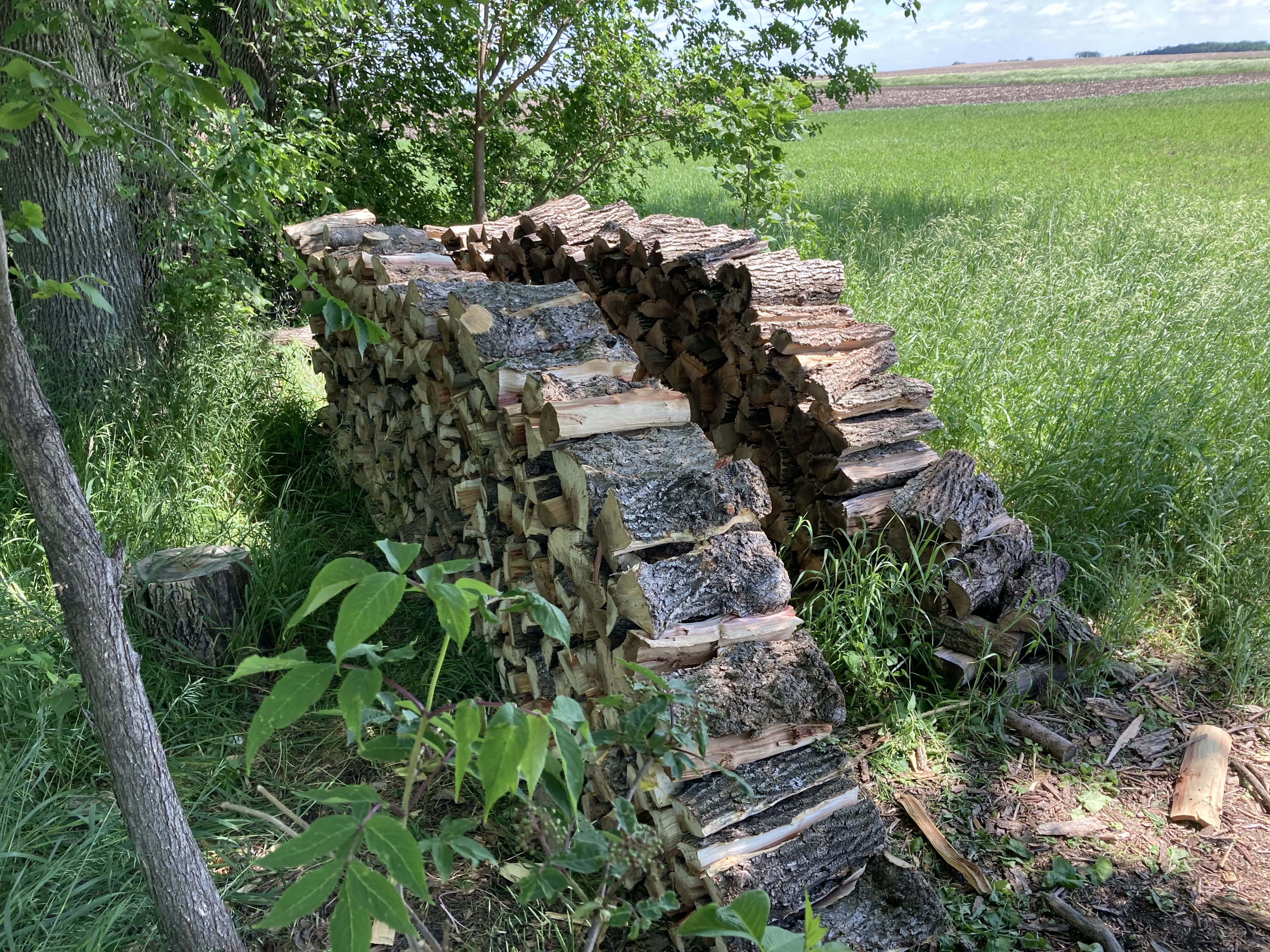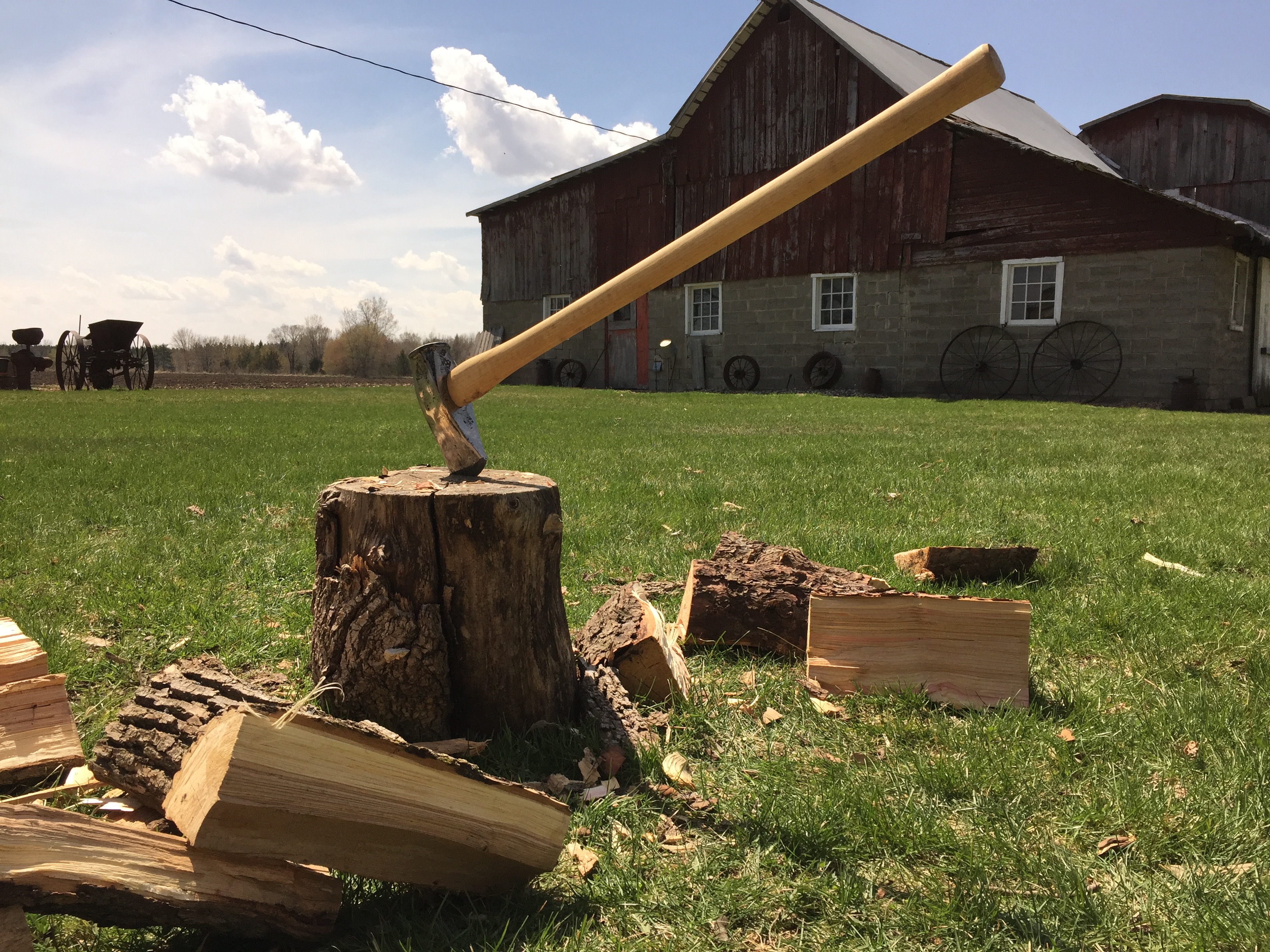I gotta keep on talking German so I don’t lose out on it. My Dad used to sing Polish, used to sing songs. Seven [languages]. He could get along with somebody, like Polish, Bohemian, German, not Norwegian or Swedish, that he didn’t-, but some of the others like… He could even understand Russian. It was in the same line. That’s where my Dad, when he went to school, where those boys are come together. And he was working, he was a shoemaker, working on shoes, in the service, when they went out for dinner, or recess, or so on they got all kinds of friends, other languages. Now they cut that out… That’s where Dad went, from Austria to Germany. Austria wouldn’t let him out, you know, because he had to serve one more year, but those two Jews they went, had the suitcases, and my Dad carried their suitcases and they went to the desk and got their passports, and my dad had ahold of those suitcase and stood behind them, and when they got their passports, they went, and Dad followed them. And those guys on the…, that were giving the passports, they thought he was just hired to carry the suitcases. That’s how he got to Germany. When he was in Germany he was all right. And when he got to the boat, the guy, or somebody there hollered, “Anybody wants to go to America and hasn’t got the passports, come here you can get it right here.” That sounded so good to my dad; he went there. He got the passport. He didn’t have enough money; he got to eat on the ship. But when he got off the ship, he didn’t have no money. He was hungry when he came here to Rich Valley. From New York to Rich Valley. There was someone he met on the way there, who gave him something to eat. But, that’s the only way he got something to eat. I don’t know how long it took from New York. I can’t remember at all. But [in] Rich Valley, he had a rope on the neck, see, and he didn’t have to; all they had to do was look at that. That just told the conductor of the train, or the depot, they just looked at that and told him what train to take. And he come to Rich Valley, right there, and his brother and his sister lived on the hill by Rich Valley. They could see that far. And when they seen him walking in the field with two suitcases, my aunt figured “that’s him”, and she took off and met him in the field. And then they were both crying in the field when they seen each other. He (my dad) was the youngest in the family. Jake was here already, and Andrew was here, and Peter was here, and Sophie, that’s the aunt. They were here already, for quite a while. Uncle Andrew had that farm rented, and then my Dad stayed there and helped him on the farm there. That’s how he got, and Uncle Andrew he was; got acquainted with the Franzmeiers. The they went to the church, Emanuel Lutheran Church in Inver Grove. A lot of Germans came and went to that church. So my Dad walked from Rich Valley to Inver Grove to church, and then he met my mother there. Well, Uncle Andrew knew the Schindeldeckers already. There was the Franzmeiers, there’s so many of them; I don’t remember all the names. In Rich Valley, and Missouri Church, Lone Oak. There were more Germans there. Grandmother, but he was Missouri [Synod]. He come by boat, in October, he married here by South St. Paul, and she prayed, you know, that he would get something else to do, instead of going on the boat, delivering groceries, and he listened to her. He bought a farm there by South St. Paul, and that’s where my mother was born. She went to school, the Missouri had a school there. That school, that church is still there, but that’s where my mother was born, and raised. She went to school there, and my grandfather was Missouri. She [grandmother] wasn’t a Lutheran girl until she married him. She was a waitress in St. Paul. That’s how he met her, when he went to St. Paul. I don’t know how. That was not a short time. He made the trip several times. She made the trips, well, after she moved, she made the trips with him three times, and she didn’t like the waiting. He had beer, too, on the boats, delivered beer and groceries, from Missouri, but he was born in Indiana. It’s close, right next to it. That’s how he—how he got to be on the boats to deliver groceries, I don’t know. That was a business that had to go at that time, to deliver groceries to St. Paul from Missouri, and the Missouri church was great in Missouri, they were strong in that area, even now. They’re still pretty strong, but I guess they had some trouble a few years back.
You know the devil’s always at work. He never quit. Trying to trouble me. But, that’s where the Schindeldeckers come from.






